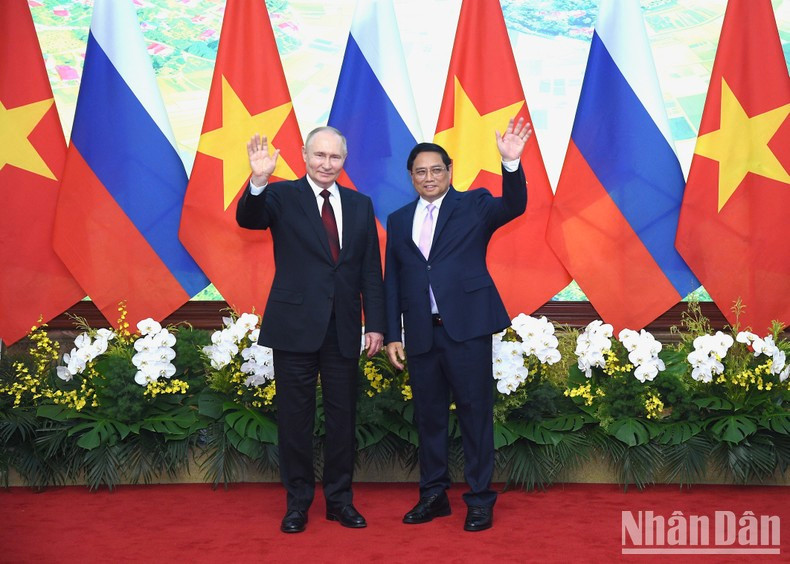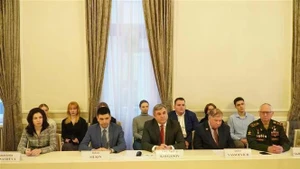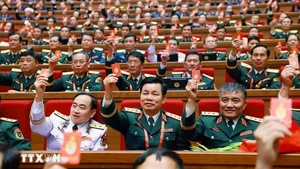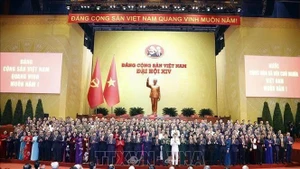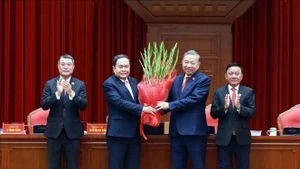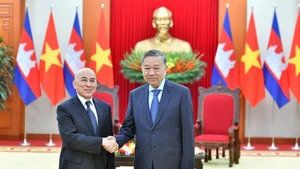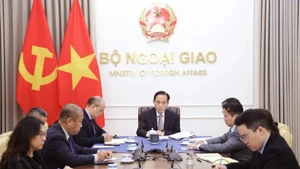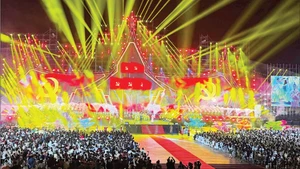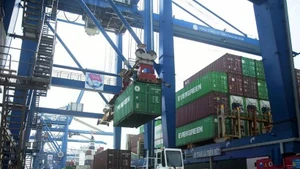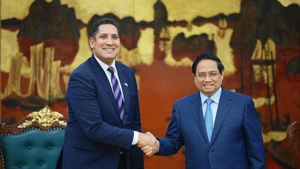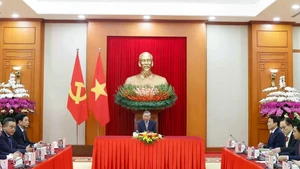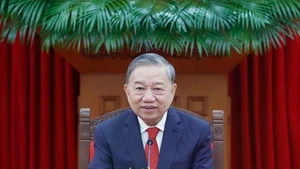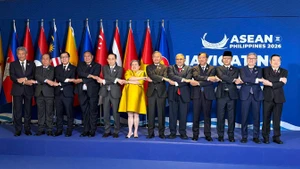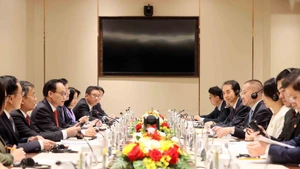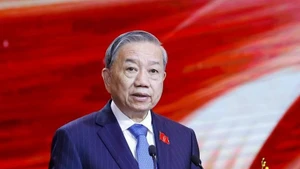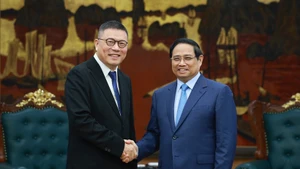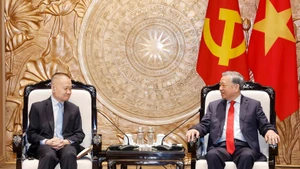At a meeting with President Putin in Hanoi on June 20, PM Chinh affirmed Vietnam is always grateful to the people of the former Soviet Union and the Russian Federation nowadays for their valuable support and assistance throughout its history, especially during the past struggle for national independence and reunification, as well as the current process of national defence, construction, renewal and socio-economic development.
The PM expressed his desire for both countries to closely coordinate efforts and create a new momentum for their traditional friendship and multifaceted cooperation. He highlighted the need to promptly address difficulties to enhance the bilateral cooperation, particularly in economy, trade, investment, and global integration, thereby deepening the comprehensive strategic partnership between Vietnam and Russia.
President Putin affirmed Vietnam as a trustworthy and long-standing partner, noting that his visit is an important opportunity to discuss and agree on measures to foster cooperation in various fields, especially economy, trade, sci-tech, energy, people-to-people and humanitarian exchanges, toward consolidating the bilateral comprehensive strategic partnership.
To further promote economic cooperation, both sides should improve the effectiveness of bilateral cooperation mechanisms, particularly the Inter-Governmental Committee for Economic-Commercial and Scientific-Technical Cooperation; soon agree on and implement the Comprehensive Plan for Vietnam-Russia Cooperation until 2030 and the list of prioritised tasks for 2024-2025; and strengthen financial and credit cooperation to facilitate trade and investment, he suggested.
PM Chinh emphasised the need to fully leverage the advantages of the Eurasian Economic Union-Vietnam Free Trade Agreement. He urged Russia to continue removing trade barriers to facilitate bilateral trade, particularly the export of Vietnamese consumer goods and agricultural products to Russia. He also called for increasing the quota for Vietnam’s rice exports and supporting access for Russian agricultural products to the Vietnamese market.
Regarding investment, both sides supported the early implementation of Russia’s large-scale projects in Vietnam, particularly in infrastructure, railways, urban metro systems, and renewable energy. They aim to create favourable conditions for businesses from both countries to expand their activities effectively.
Stressing oil-energy cooperation as a cornerstone of the bilateral economic cooperation, PM Chinh proposed close coordination and timely solutions to tackling difficulties and improving the efficiency of joint projects in oil exploration and exploitation.
Vietnam is ready to support operations of the joint venture Vietsovpetro and Russian oil companies like Zarubezhneft and Gazprom in expanding their activities in Vietnam, he said.
Both sides also backed expanding cooperation to new, clean, and renewable energy sectors, such as liquefied natural gas and offshore wind power, to contribute to sustainable development goals.
Leaders of both countries were committed to stronger collaboration in sci-tech, information and communication technology, culture, sports, tourism and labour.
They supported the enhancement of the teaching and promotion of Vietnamese and Russian languages in each country through cultural centres. PM Chinh proposed Russia support in training Vietnamese athletes in areas like gymnastics and chess. Both sides will initiate negotiations and sign a new agreement on labour and vocational training.
The PM proposed Russian leaders and authorities continue supporting the Vietnamese community living in Russia.
On global and regional issues of shared concern, the two leaders pledged to continue working closely together at multilateral forums, including the UN, ASEAN and APEC. President Putin acknowledged Vietnam's objective and balanced stance on the Ukraine issue.
PM Chinh affirmed that Vietnam supports the settlement of disputes and differences via peaceful measures in accordance with international law and the United Nations Charter, taking into account the legitimate interests of all parties involved, for the sake of peace, stability and development in the region and the world, adding that Vietnam is ready to join international efforts to seek peaceful and sustainable solutions to the Ukraine issue.
Regarding the East Sea/South China Sea issue, the two leaders expressed their support for the settlement of disputes through peaceful means in line with international law and the UN Charter, particularly the 1982 UN Convention on the Law of the Sea (UNCLOS); ensuring security, safety, and freedom of navigation and aviation; full enforcement of the Declaration on the Conduct of Parties in the East Sea (DOC) and soon achieving an effective and practical Code of Conduct (COC) in the East Sea.
